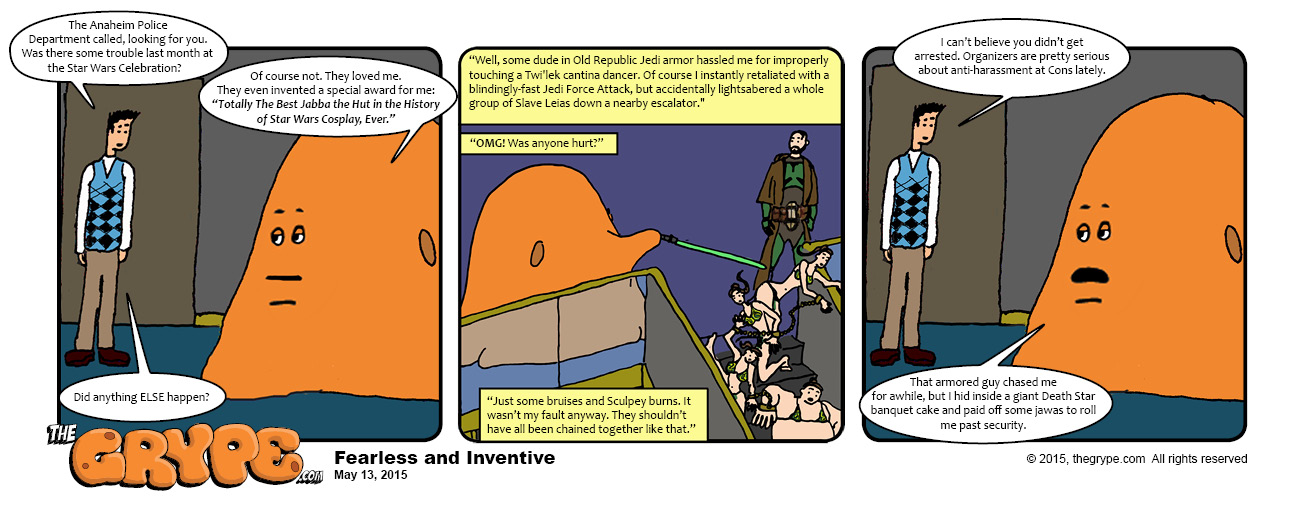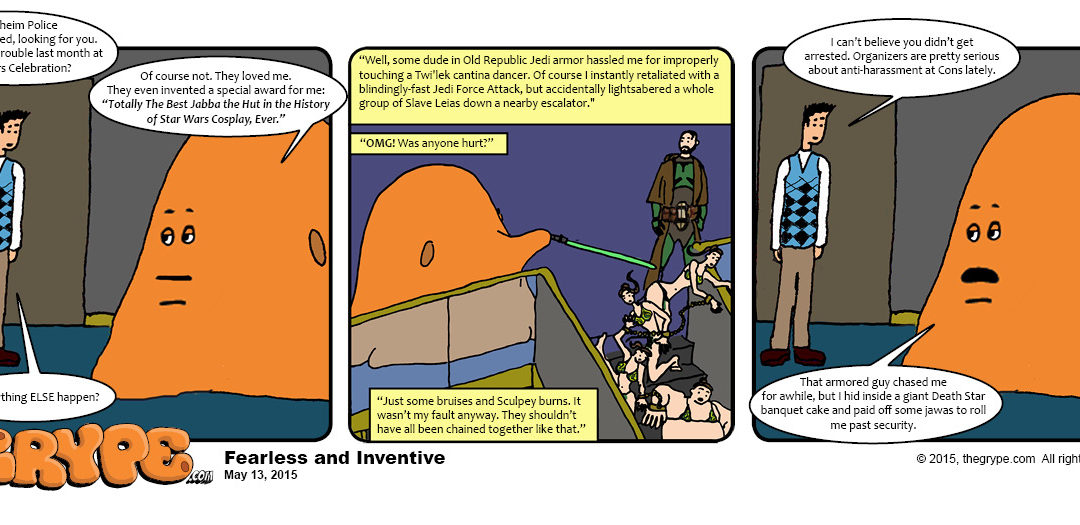 Political Correctness functions according to the assumption that “it is never okay to risk offending someone else, ever.”
Political Correctness functions according to the assumption that “it is never okay to risk offending someone else, ever.”
I, on the other hand, simply don’t believe that. Once you resign yourself to the attempt, it’s a slippery slope to madness. You will NEVER be able to predict what everyone else on the planet MIGHT find offensive, since everyone is different, and everyone has different personal experiences informing what they find offensive, and why.
The modern etymology of the phrase “Political Correctness” was originally intended as an insult, referring to the harsh repressive speech doctrines in place in Soviet Russia. It was later adapted in the 1970’s and used in its present manner, applied to the concept that politicians running for office dared not speak plainly lest they potentially offend potential voters or constituents. It’s also been adapted in modern usage to reflect a theoretical verbal “safe zone” wherein there is zero chance of speaking offensively. Which never works, for reasons mentioned above.
I habitually reject such drastic self-censorship, preferring instead to speak plainly and directly and— most importantly—politely. If offense is taken where none was intended, I will usually apologize— unless the offended party is being unreasonable, and will brook ONLY offense at anything spoken to them. Sadly, there are LOTS of such people these days, wandering around with a perpetual chip on their shoulder.
Nor am I a fan of the endless creation of new pseudo-official socially-acceptable labels for types of people intended to empower (or dis-empower) various classifications of individuals. All that does is drive further wedges between different groups, usually as an exercise in vanity. More labels force people to be more discriminatory— seriously, look up the meaning of that word. And such discrimination tends to make things worse in the long run, not better. Star Belly Sneetches, anyone?
“Free Speech” doesn’t mean “the freedom to say anything without social repercussions.”
Nor are there any provisions in the U.S. Constitution that guarantee everyone some supposed right “never to have anyone else say or do something they personally don’t like or agree with.” Living in a polite society with other people can get bumpy. Get a helmet.
Whenever people start insisting it’s their right to police “offensive” art or challenge another person’s right to create in certain areas, or to attack them for exploring the experiences of people other than they themselves or for creating art that some might like less than others, or even for pursuing art that some could find emotionally upsetting— if such policing occurs, even for the highest-sounding of reasons, it risks drifting into the realm of “Crimestop.” That’s the Orwellian insistence that one must stop short of thinking anything considered heretical or unorthodox before it can even be thought. It’s the conditioned response of someone who encounters a term or phrase intended to trigger some Pavlovian-conditioned warning (“just don’t go there“) and automatically halts their thinking, redirecting their intellect into more socially acceptable lines of thought.
I find that possibility not just insulting and perverse, but terrifying. Cogito ergo sum. I wish to have the same privilege of a sponge, I wish to think. It’s also my studied opinion that encouraging the widest expanse of thought possible is always the best option; it’s a practice that broadens our culture and exalts both our uniqueness as well as our commonality.
The catch-phrases “you wouldn’t understand, it’s a _____ thing” or “check your privilege” are too often used nowadays NOT to defend against cultural misunderstanding— but rather as an excuse to shut others up and invalidate their opinions based upon not what they believe and say, but upon who they supposedly are.
Trying to shut other people up because they have dissenting opinions, or forcing them to shut THEMSELVES UP in fear of the mob, is one of the oldest tricks in the book… and is the first step toward the lockstep of Fascism. So I suppose political correctness is, in the end, all about politics after all.
Let this be our mantra: discourage no thought, fear no idea, and speak always from the heart. Else how will we ever come to know one another well enough to properly understand each other, better enablling us to improve our lives and the lives of those around us?

